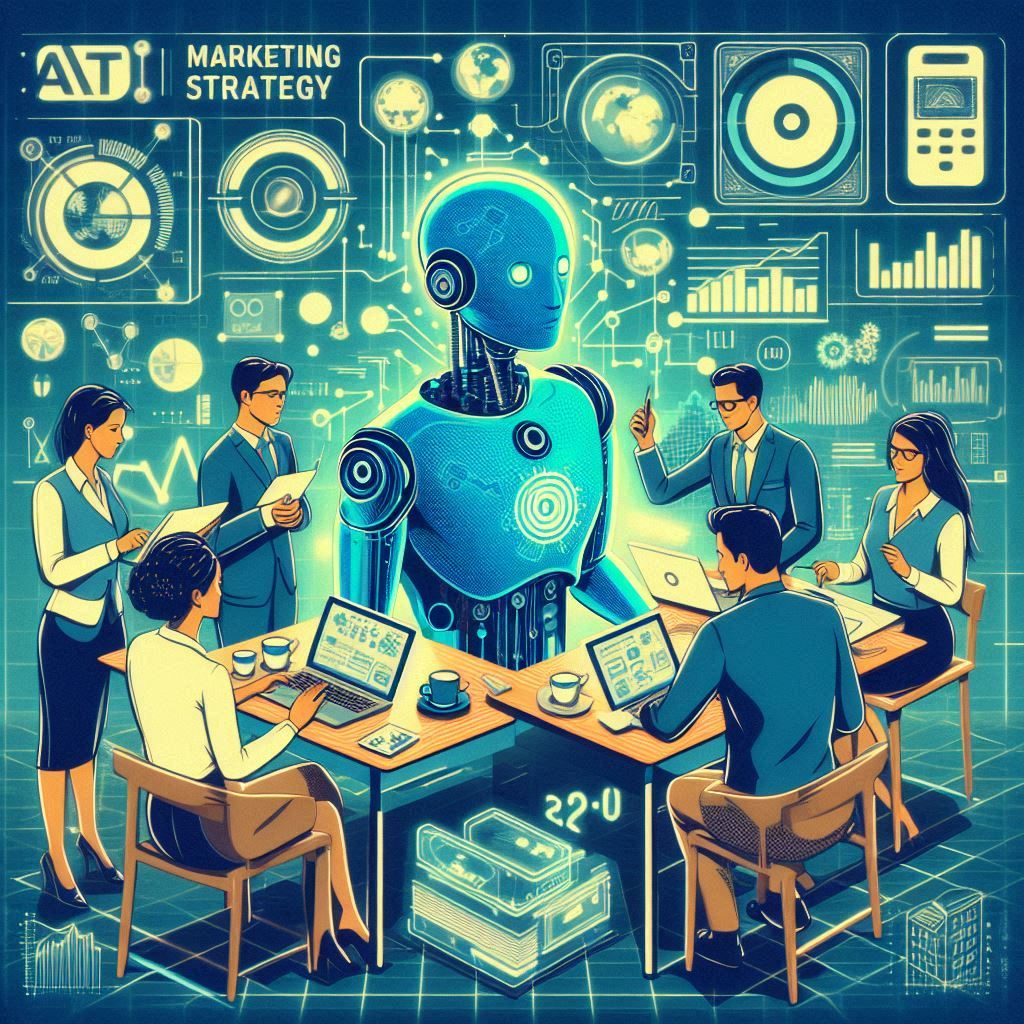Discover how AI is reshaping customer engagement by providing personalised experiences and insights.
- Learn about the benefits of integrating AI into marketing strategies, including enhanced efficiency and customer satisfaction.
- Explore real-world examples and future trends in AI-driven marketing, along with the challenges faced in implementation.
How AI for marketing is revolutionizing customer engagement
Is AI stupid? It’s a question that often arises when discussing the capabilities of artificial intelligence. While AI can process vast amounts of data and perform complex tasks, it lacks the human touch—empathy, creativity, and intuition. In the realm of marketing, AI is not about replacing human interaction but enhancing it. By leveraging AI for marketing, we can create more meaningful and personalised customer experiences.
AI is revolutionising customer engagement by providing marketers with AI-driven insights that were previously unimaginable. Through advanced data analytics, AI can predict customer behaviour, preferences, and needs, allowing marketers to tailor their strategies accordingly. This level of personalisation not only enhances customer satisfaction but also fosters brand loyalty. At weknowthingsmarketing.com, we believe in combining the power of AI with human creativity to deliver exceptional customer experiences.
However, it’s crucial to remember that AI is a tool, not a replacement for human interaction. As highlighted in a HubSpot article, AI-driven tools excel in the early stages of the customer journey, but human-led interactions are essential in the later stages. This balance ensures that customers feel valued and understood, ultimately leading to long-term engagement.
Benefits of using AI in marketing
Integrating AI into marketing strategies offers numerous benefits that can significantly enhance a company’s digital marketing efforts.
- One of the primary advantages is marketing automation. AI can automate repetitive tasks, such as email marketing and social media scheduling, freeing up valuable time for marketers to focus on more strategic initiatives. This not only increases efficiency but also ensures consistency in brand messaging.
- Another key benefit is the ability to gain deeper insights into customer behaviour. AI-driven insights allow marketers to understand their audience on a granular level, enabling them to create highly targeted campaigns. By analysing data from various sources, AI can identify patterns and trends that might go unnoticed by human analysts. This data-driven approach empowers marketers to make informed decisions and optimise their strategies for maximum impact.
- Moreover, AI can enhance customer satisfaction by delivering personalised experiences. By leveraging AI, marketers can tailor their content and offers to individual preferences, creating a more engaging and relevant experience for each customer. This level of personalisation not only increases conversion rates but also fosters brand loyalty.
For more insights on the benefits of using AI in marketing campaigns, visit our website.
Real-world examples
AI is already making waves in the marketing world, with numerous companies leveraging its capabilities to enhance customer engagement.
- One notable example is Netflix, which uses AI algorithms to recommend content based on user preferences and viewing history. This personalised approach has been instrumental in keeping users engaged and reducing churn rates.
- Another example is Starbucks, which employs AI to personalise its marketing efforts. By analysing customer data, Starbucks can send targeted offers and recommendations to its app users, increasing customer satisfaction and driving sales. This AI-driven strategy has been a key factor in the company’s success in retaining and growing its customer base.
- At weknowthingsmarketing.com, we have also witnessed the transformative power of AI in marketing. By integrating AI tools into our clients’ strategies, we’ve helped them achieve remarkable results in terms of customer engagement and conversion rates.
These real-world examples demonstrate the immense potential of AI in revolutionising marketing practices.
Challenges in implementing AI strategies
While the benefits are undeniable, implementing AI strategies is not without its challenges.
- One of the primary obstacles is the complexity of AI technology. Many companies struggle to understand and integrate AI into their existing systems, leading to a steep learning curve. Additionally, the cost of implementing AI solutions can be prohibitive for smaller businesses.
- Another challenge is the ethical considerations surrounding AI. As AI becomes more prevalent in marketing, concerns about data privacy and security have emerged. Companies must ensure that they handle customer data responsibly and transparently to maintain trust and compliance with regulations. This requires a delicate balance between leveraging AI for insights and respecting customer privacy.
- Moreover, the reliance on AI can sometimes lead to a lack of human touch in marketing efforts. While AI can provide valuable insights, it cannot replicate the empathy and creativity that human marketers bring to the table. It’s essential to strike a balance between AI-driven automation and human interaction to create authentic and meaningful customer experiences.
For more insights on the impact of AI in marketing</a>, explore our resources.
Future trends in AI and customer engagement
The future of AI in marketing is promising, with several trends set to shape the landscape of customer engagement.
- One such trend is the rise of conversational AI, which enables brands to interact with customers through chatbots and virtual assistants. These AI-powered tools can provide instant support and personalised recommendations, enhancing the overall customer experience.
- Another emerging trend is the use of AI for predictive analytics. By analysing historical data, AI can forecast future customer behaviour and preferences, allowing marketers to anticipate needs and tailor their strategies accordingly. This proactive approach can lead to more effective marketing campaigns and improved customer satisfaction.
As AI technology continues to evolve, we can expect even more innovative applications in the marketing realm. From AI-generated content to advanced personalisation techniques, the possibilities are endless. At weknowthingsmarketing.com and at our partner Inovient.io we are committed to staying at the forefront of these trends and helping our clients harness the full potential of AI for marketing success.
Conclusion
In conclusion, AI is not a replacement for human marketers but a powerful tool that can enhance customer engagement and drive business success. By leveraging AI-driven insights and automation, companies can create personalised experiences that resonate with their audience. However, it’s crucial to strike a balance between AI and human interaction to ensure authenticity and empathy in marketing efforts.
As we look to the future, the potential of AI in marketing is vast. By staying informed about emerging trends and embracing innovative strategies, businesses can position themselves as leaders in the digital marketing landscape. At weknowthingsmarketing.com, we are dedicated to helping our clients navigate this exciting journey and achieve their marketing goals.
Ready to explore the possibilities of AI for your marketing strategy? Contact us today to learn how we can help you revolutionise your customer engagement and drive business growth.
FAQ
What are the key benefits of using AI in marketing?</strong></strong></strong>
AI offers numerous benefits in marke
ting, including automation of repetitive tasks, deeper insights into customer behaviour, and enhanced personalisation. These advantages lead to increased efficiency, improved customer satisfaction, and higher conversion rates.
How can AI enhance customer engagement?
AI enhances customer engagement by providing personalised experiences and insights. By analysing data, AI can predict customer preferences and tailor marketing strategies accordingly, resulting in more meaningful interactions and stronger brand loyalty.
What are the challenges of implementing AI in marketing?
Challenges in implementing AI include the complexity of technology, ethical considerations around data privacy, and the potential lack of human touch. Companies must navigate these challenges to successfully integrate AI into their marketing strategies.
What are the future trends in AI and customer engagement?
Future trends in AI and customer engagement include the rise of conversational AI, predictive analytics, and advanced personalisation techniques. These trends will continue to shape the marketing landscape and offer new opportunities for businesses to connect with their audience.
How can businesses balance AI and human interaction in marketing?
<p>To balance AI and human interaction, businesses should use AI to enhance efficiency and insights while maintaining authentic and empathetic human interactions. This approach ensures that customers feel valued and understood, leading to long-term engagement.



